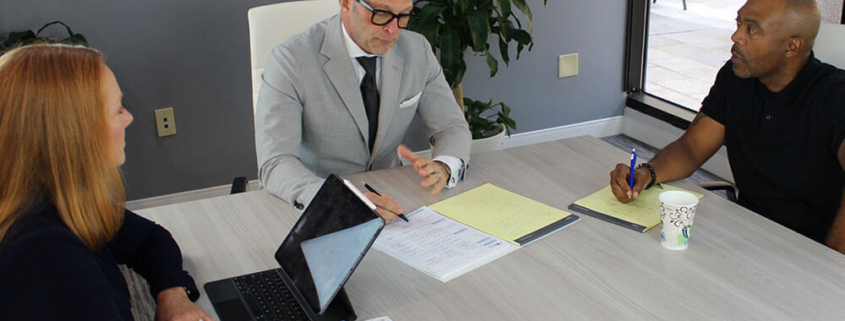Understanding the Mediation Process
Pursuing a personal injury lawsuit can be stressful, costly, and time-consuming. Fortunately, there are alternatives to taking your dispute to court. Using mediation, two or more parties can resolve their dispute informally with the assistance of a neutral third party, called the mediator, and avoid litigation completely.
While you still want an attorney by your side to represent and protect your rights, you also need to find the right third party to mediate your case. The best mediators have training in conflict resolution and understand the underlying legal issues involved. Here is what you need to know about the mediation process for personal injury cases.
Understanding the Mediation Process
Because mediation is unfamiliar to many people, it can be a bit confusing and stressful. But when you know what to expect, this can ease your mind and confirm you’ve made the right choice. Here are some of the most common steps in the mediation process.
- Introductory Remarks
As soon as everyone is present, the mediator will make introductions and give some introductory remarks. This will include an outline of how the mediation process works and what you should expect. The mediator will also tell about their role in the process, specifically what they will and will not do to facilitate an agreement.
- Opening Statements
After the introductory remarks, each party will have an opportunity to make an uninterrupted opening statement. This allows them to give their side of the story.
- Joint Discussions
Following opening statements, the mediator may ask each party some open-ended questions to build a dialogue and get more information to help bring the matter toward a resolution. Each party should remain calm and take turns answering the questions.
- Private Discussions
Once the two parties have met together, it’s time to move to separate rooms. The mediator will spend some more time with each party privately asking questions and finding out their positions on settlement.
- Negotiation
When the mediator knows what each side is willing to offer, negotiations can begin. Often, the mediator will go back and forth between the two parties many times with offers and counteroffers. At the same time, there will be discussions about the pros and cons of settlement and other concessions that may bring the parties closer to a consensus.
- Settlement
This is the final step in the process. If the parties are able to settle, everything is put in writing and submitted to the court for approval. If you cannot reach an agreement, the case can go to trial, or negotiations can continue at a later date.
Coming Prepared for Your Mediation
While it’s true that most disputes are settled at mediation, this magic doesn’t just happen. To achieve the best possible results, particularly ones you are most satisfied with, you need to put some time and effort into the process, even before the big day. Here are a few ways you can prepare for your upcoming mediation.
- Identify Your Key Interests in the Dispute
Before you show up to the mediation, sit down with your attorney to prioritize what is most important to you in a settlement. This will influence the strategy used to get the best possible deal.
- Be Ready to Make an Offer
Research shows that the party making the first offer in a negotiation is often the most satisfied. This is because the first offer sets the stage and helps define the range for what is considered “reasonable.”
- Reality Check Your Expectations
Ask your attorney what your odds are if you take your case to court. Unless they’re 100%, there is a strong case for settling at mediation.
- Estimate the Cost of Litigation
One of the incentives to settle at mediation is that you save a ton of money by not going forward with a courtroom battle. Make sure you ask for an estimate for litigation costs, so you fully understand your savings.
- Don’t Be Afraid to Speak Your Mind
There’s nothing wrong with having your attorney speak for you if you feel intimidated by the process. But anything you say to the mediator is confidential, so there’s nothing wrong with speaking your mind, so you ensure your voice gets heard.
Contact Bailey Mediation to Schedule Your Mediation Now
When you have a personal injury matter you need to resolve, you don’t have to resort to costly and time-consuming litigation. Whether you are choosing mediation or must go through it as part of the pre-trial process, we are confident you’ll find this strategy beneficial.
Tim Bailey has over 30 years of experience as a successful personal injury lawyer in several states. He uses his background, knowledge of the law, and superior communication skills to help parties find common ground and reach satisfactory settlements. For cases in West Virginia, contact our office today to schedule a free initial consultation.



Leave a Reply
Want to join the discussion?Feel free to contribute!